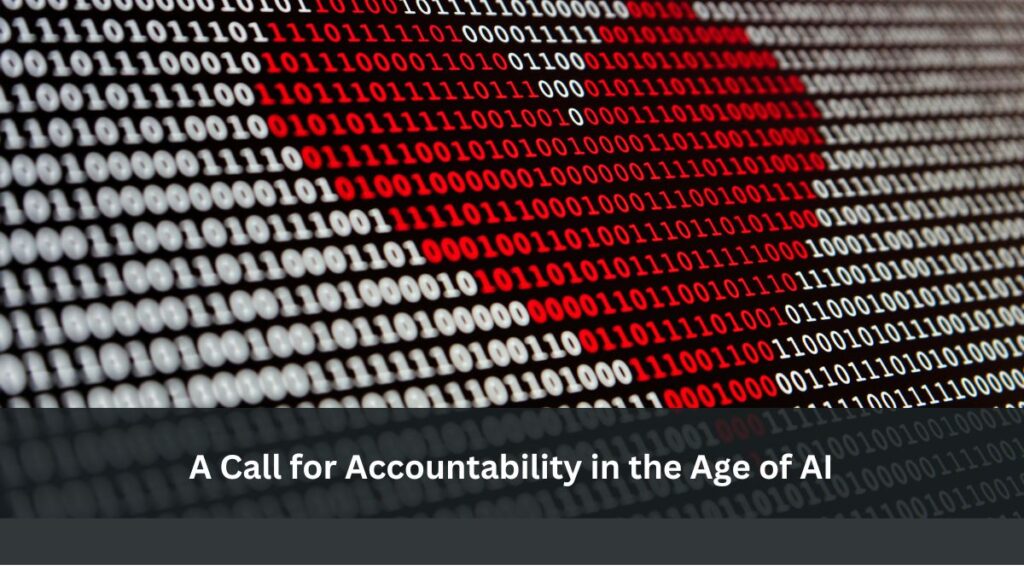In a bold move that sheds light on the growing concerns surrounding the ethics and governance of artificial intelligence (AI), a group of current and former employees from leading AI companies like OpenAI, Google DeepMind, and Anthropic have signed an open letter demanding stronger whistleblower protections and greater transparency. This collective action underscores the pressing need for effective oversight and accountability in an industry that holds the potential to shape the future of humanity.
Breaking the Silence
The open letter, published on Tuesday, serves as a rallying cry for those who have witnessed the inner workings of these tech giants and their pursuit of increasingly powerful AI systems. As the letter poignantly states, “So long as there is no effective government oversight of these corporations, current and former employees are among the few people who can hold them accountable to the public.” (Open Letter, 2024)
In a personal anecdote shared by one of the signatories, Daniel Kokotajlo, a former OpenAI employee, he revealed his decision to resign from the company after losing confidence in its ability to responsibly develop artificial general intelligence (AGI) – a term for AI systems that match or surpass human intelligence. “There is a lot we don’t understand about how these systems work and whether they will remain aligned to human interests as they get smarter and possibly surpass human-level intelligence in all areas,”
This sentiment echoes the growing concerns among AI experts and ethicists about the potential risks associated with the unchecked development of increasingly sophisticated AI systems, including the spread of misinformation, exacerbation of inequality, and even the potential loss of human control over autonomous systems – a risk that some experts warn could lead to human extinction.
Silencing the Voices of Caution
The open letter highlights the challenges faced by those who attempt to raise red flags within their organizations. “Yet broad confidentiality agreements block us from voicing our concerns, except to the very companies that may be failing to address these issues,” the letter states. (Open Letter, 2024)
This issue came to the forefront recently when a Vox investigation revealed that OpenAI had attempted to muzzle departing employees by forcing them to choose between signing an aggressive non-disparagement agreement or risking the loss of their vested equity in the company. While OpenAI CEO Sam Altman later claimed the provision had been removed from recent exit documentation, the incident underscores the potential for retaliation against whistleblowers within the industry.
A Call for Transparency and Ethical Governance
The signatories, which include prominent AI experts such as Geoffrey Hinton, Yoshua Bengio, and Stuart Russell, are calling on AI companies to commit to four key principles:
- Refraining from retaliating against employees who voice safety concerns
- Supporting an anonymous system for whistleblowers to alert the public and regulators about risks
- Allowing a culture of open criticism
- Avoiding non-disparagement or non-disclosure agreements that restrict employees from speaking out
These principles aim to create an environment where ethical concerns can be raised without fear of repercussions and where the pursuit of technological advancement is balanced with a commitment to safety and responsible development.
The Urgency of Oversight
As the letter aptly states, “Meanwhile, there is little to no oversight over this technology. Instead, we rely on the companies building them to self-govern, even as profit motives and excitement about the technology push them to ‘move fast and break things.'” (Open Letter, 2024)
This lack of effective government oversight and the financial incentives driving the rapid development of AI systems have raised alarm bells among experts who warn of the potential consequences of unchecked progress. The open letter serves as a clarion call for policymakers and regulators to take action and establish a framework for responsible AI development that prioritizes public safety and ethical considerations.
A Responsibility to the Future
As the authors of the open letter eloquently state, “Silencing researchers and making them afraid of retaliation is dangerous when we are currently some of the only people in a position to warn the public.” (Kokotajlo, X, 2024) This sentiment underscores the crucial role that whistleblowers and dissenting voices play in ensuring the responsible development of AI technologies that have the potential to reshape the world as we know it.
The demands outlined in the open letter represent a critical step towards fostering a culture of accountability, transparency, and ethical governance within the AI industry. By empowering those on the frontlines to speak out without fear of retaliation, we can ensure that the pursuit of technological progress is guided by a steadfast commitment to human safety, well-being, and the preservation of our fundamental values.
In an era where the possibilities and perils of AI are intertwined, it is incumbent upon all stakeholders – from tech giants to policymakers and the public – to heed the voices of concern and work towards a future where the immense potential of AI is harnessed responsibly and ethically, safeguarding the interests of humanity for generations to come.

